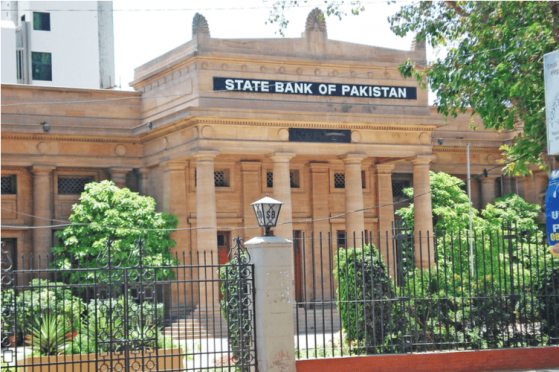In a notification sent to the Presidents and Chief Executives of all banks and payment system operators in the country, the State of Bank of Pakistan (SBP) prohibited dealing in virtual currencies and tokens.
The central bank went on to clarify its stance on digital currencies, stating that they are not legal tender and that the SBP has not sanctioned the issuance, exchange or trading of these currencies:
“Virtual Currencies (VCs) like Bitcoin, Litecoin, Pakcoin, OneCoin, DasCoin, Pay Diamond etc. or Initial Coin Offerings (ICO) tokens are not legal tender, issued or guaranteed by the Government of Pakistan. SBP has not authorized or licensed any individual or entity for the issuance, sale, purchase, exchange or investment in any such Virtual Currencies/Coins/Tokens in Pakistan.”
The statement further ‘advises’ all banks and payment system operators to refrain from engaging in, or facilitating customers to transact in selling, buying or trading cryptocurrencies, particularly highlighting initial coin offerings.
Finally, the bank warned against such transactions being reported to the country’s Financial Monitoring Unit (FMU) as suspicious:
“...all Banks/ DFIs/ Microfinance Banks and Payment System Operators (PSOs)/Payment Service Providers (PSPs) are advised to refrain from processing, using, trading, holding, transferring value, promoting and investing in Virtual Currencies/Tokens. Further, banks/DFIs/Microfinance Banks and PSOs/PSPs will not facilitate their customers/account holders to transact in VCs/ICO Tokens. Any transaction in this regard shall immediately be reported to Financial Monitoring Unit (FMU) as a suspicious transaction.”
This move comes after the Reserve Bank of India barred all regulated financial institutions from engaging in crypto transactions. However, renowned investor, Tim Draper, called India’s move a mistake and warned that it would hurt the country in the long-run.
The regulatory environment for cryptocurrencies has been tough due, particularly due to the host of scams in the market, including pyramid schemes and fraudulent ICOs. On the one hand, central banks are trying to protect unsuspecting customers, and on the other, they are barring experienced investors and traders from engaging in legitimate markets.
It remains to be seen how these developments affect crypto trading and investment activities in both countries.
This article appeared first on Cryptovest
